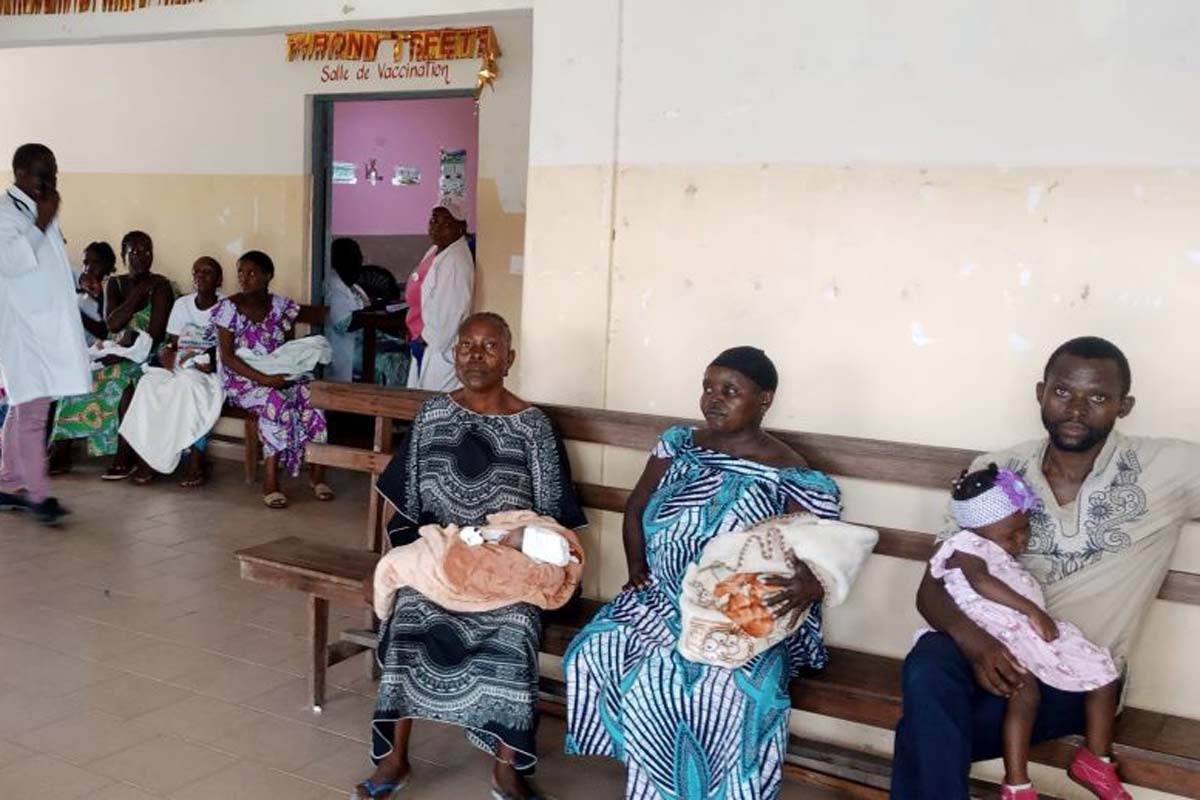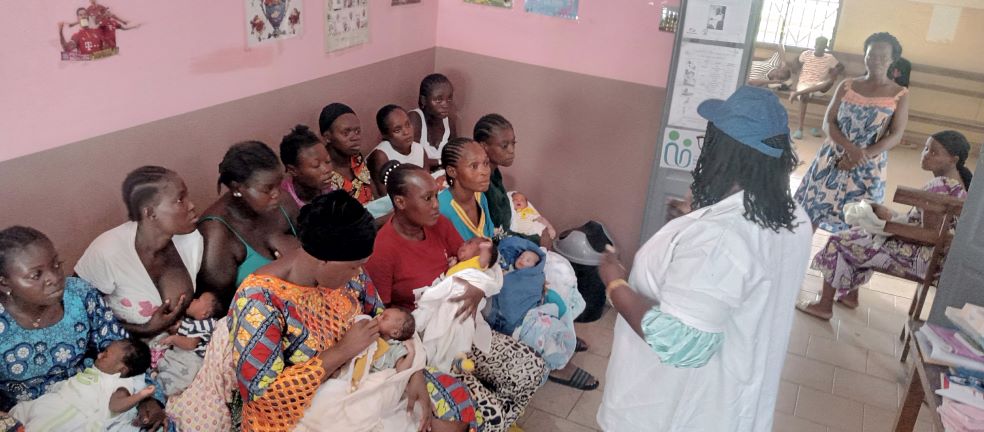Closing the gap: reaching zero-dose children in Congo-Brazzaville
In Congo-Brazzaville, thousands of children have never received a single vaccine. Why?
- 15 May 2025
- 5 min read
- by Brice Kinhou

Congo-Brazzaville’s thousands of unvaccinated children may be “missed”, but they’re not forgotten. Many actors – from the Ministry of Health and Population, to CARITAS Congo, alongside many other community-based and international organisations – are working to identify so-called ‘zero-dose’ children and bring them to safety in the vaccination system. But why do so many fall through the cracks in the first place?
Whether living in remote villages, informal settlements, or in families displaced by crisis, children can wind up beyond the health system’s reach for a range of reasons. Physical distance, lack of financial means, the exigencies of the daily struggle for survival, mistrust of the health system and the spread of misinformation all play a role.
For some families, the distance to the nearest health centre is a major obstacle. For others, even when vaccines are free, the costs of transport, food, or losing a day’s income make access difficult.
Finding a safe haven
In certain communities, mistrust of vaccination runs deep. But when parents receive clear and trustworthy information, many are willing to return to the health system.
Dr Engoma Préfina Séphora, head of the Saint-Joseph Integrated Health Centre in Pointe-Noire, sees this regularly: “During a community talk with the neighbourhood chief, I saw that once the mothers had accurate information, they asked questions and even expressed regret. Many came back to the hospital to get their children vaccinated.”
In Pointe-Noire’s Matindé neighbourhood, Stella Ngoma, a single mother, shares how her two-year-old son, John, became a ‘zero-dose’ child:
“When my youngest was born, my husband left us. I found myself alone with three children and no job. After John’s first injection, he had a high fever for two days. I panicked. A neighbour lent me money for treatment, but she also said vaccines can kill children. Other women said the same. Since then, I haven’t dared go back.”

Credit: Brice Kinhou
Stella’s story is far from unique. Fevers following vaccination are common – a sign that the immune system is responding to the vaccine’s stimulus. Unfortunately, without that context, it can also be alarming. Myths about vaccine safety that spread online, person to person, or even from people in positions of community authority, can prey on parental concern, leaving children at unnecessary risk of deadly infection.
A collective effort on the ground
The Congolese Ministry of Health and Population, with support from CARITAS Congo, has launched targeted campaigns to identify, locate and vaccinate zero-dose children – particularly in remote rural areas and underserved urban neighbourhoods. These efforts include information sessions in local languages, the distribution of vaccination cards, and personalised follow-up.
“We realised that many parents don’t come to the hospital on their own. We support the health authorities with technical and financial assistance to make mobile campaigns more effective,” explains Juste Olichichingui, Gavi focal point for CARITAS in Pointe-Noire.
CARITAS also relies on community liaisons – local men and women who speak the language, understand local beliefs and can build trust where outsiders might not. They play a vital role in overcoming cultural barriers to vaccination.
Door-to-door outreach has become central to efforts on the ground.
Have you read?
“What I like most about these campaigns is being out in the field,” says Dr Engoma Préfina Séphora. “You learn a lot: some mothers were put off by a comment from a health worker. Others fear the vaccine might harm their children because that’s what’s said in their ethnic group. When I come across these situations, I try to reassure them.”
To improve the effectiveness of these campaigns, digital tools are now being used. With tablets, teams can collect real-time data – vaccination status, location, number of children per household – which allows for more precise planning and better follow-up.
In 2024, several measles outbreaks in the country were traced back to pockets of unvaccinated children.
Community and religious leaders also play a key role in breaking taboos and encouraging uptake. Traditional chiefs, pastors or imams can, with just a few words, shift the opinion of an entire community.
In Mouyondzi, close collaboration between the local church and health authorities has helped triple vaccination coverage in just a few months. Some teams go even further: by combining vaccination with other services – such as nutrition screening, child weighing, or deworming – they attract more families. It’s a holistic approach, better suited to the realities on the ground.
Beyond vaccines, a fight for social justice
A child who hasn’t been vaccinated is not just a child who is missing out on routine immunisation. Most often, they are excluded on multiple fronts – lacking schooling, a birth certificate, and without access to other forms of basic healthcare.
“A zero-dose child is generally one whose mother has never seen a doctor,” says Nathalie Elenga of the Expanded Programme on Immunisation (EPI).
And the consequences are serious. In 2024, several measles outbreaks in the country were traced back to pockets of unvaccinated children.
“Even a single cluster can trigger a resurgence if herd immunity is weak,” warns Dr Gatali Kibangou Marina, a paediatrician at A. Sicé Hospital.
As such, the fight against zero-dose children goes far beyond vaccination. It is a question of equity, of social justice, of the fundamental right to health.
The campaigns led by the Ministry of Health and CARITAS are already saving lives. But they also reveal a deeper truth: to reach every child, the system must first learn to see those who are most invisible.
At its heart, the effort is guided by a simple but decisive principle: no child should be left behind.
That means restoring trust – between families and health workers, between communities and institutions. Signs of progress are emerging. With support from UNICEF and Gavi, the Ministry is investing in birth registration systems and training more community health workers.
The road ahead is long. But every child reached is a victory.





